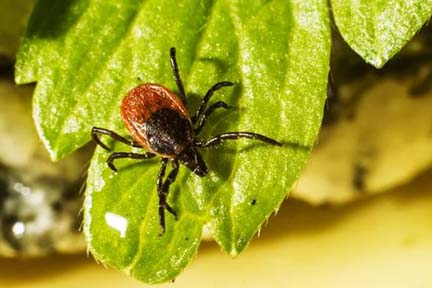 |
| For immediate release: May 6, 2024 Media contact: Jennifer Holton, 517-284-5724 Program contact: Emily Pochubay, 517-231-8723 MDARD offers guidance on creating tick-safe zones around the homeLANSING. – As warmer weather approaches, so does the increased risk of tick encounters, posing potential health threats to people and pets enjoying outdoor activities. That’s why the Michigan Department of Agriculture and Rural Development (MDARD) offers advice on how to create tick-safe zones around your home. There are over 20 known tick species in Michigan. Most often, they survive by feeding on wildlife. Several species of ticks are known to bite people and pets; and the insects may harbor dangerous bacteria, viruses, or parasites. Not all ticks carry diseases, but tick-related diseases (including Lyme disease) do occur in Michigan and can be serious or fatal if not properly diagnosed and treated. “Using insect repellents while outdoors and checking for ticks after being outdoors are common ways to prevent tick bites on people and pets, but other strategies can help reduce ticks around your homes without using pesticides,” said Steve Carlson, MDARD’s Pesticide and Plant Pest Management Division Director. “Integrated pest management, commonly referred to as IPM, uses multiple, systematic methods to minimize the impact of pests on people and property, while safeguarding the environment.” Here are some simple IPM techniques to help reduce tick populations around your home:
If you do choose to use pesticides, follow these safety tips:
If you are interested in hiring a pesticide applicator to manage pests for you, choose a firm licensed by MDARD. Licensed firms meet the necessary education and experience requirements and employ pesticide applicators who have passed MDARD’s proficiency examinations. Their training and experience will help prevent accidental pesticide misuse that could harm people, pets, livestock, and the environment. For additional information about ticks, including how to identify and remove a tick, visit the MDHHS website. Learn more about pesticide safety at Michigan.gov/MDARD. |

